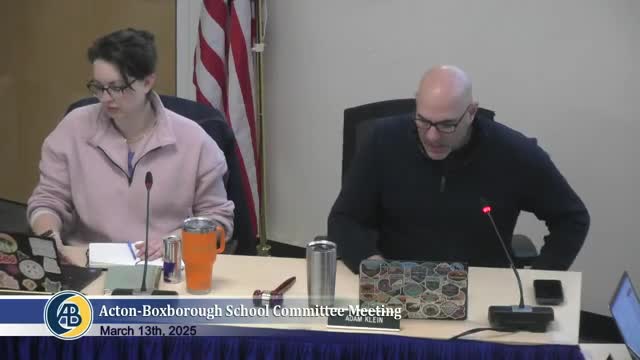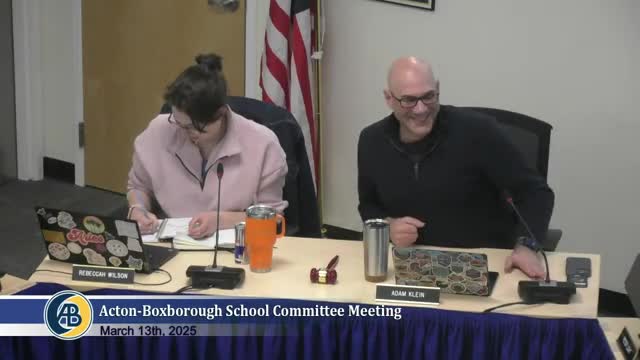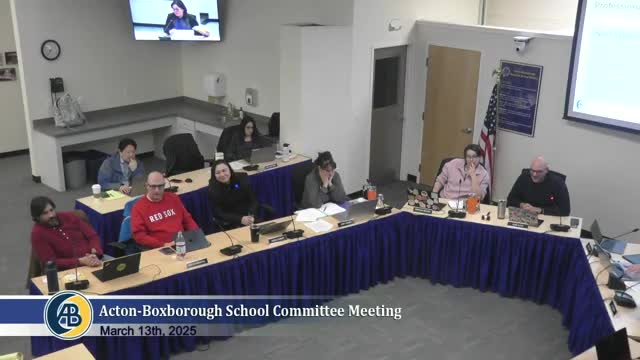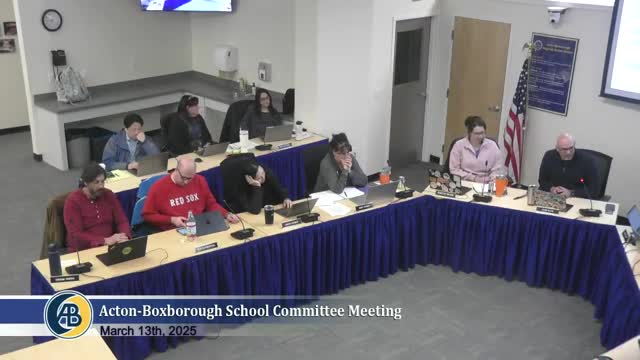Article not found
This article is no longer available. But don't worry—we've gathered other articles that discuss the same topic.

Acton-Boxborough leaders hold FY26 budget hearing as committee braces for larger increases ahead

District entry plan: administrators flag growing student needs, recommend focus on Tier 1 instruction and curriculum processes

Acton-Boxborough staff propose coursework and portfolio paths to replace MCAS as competency standard

